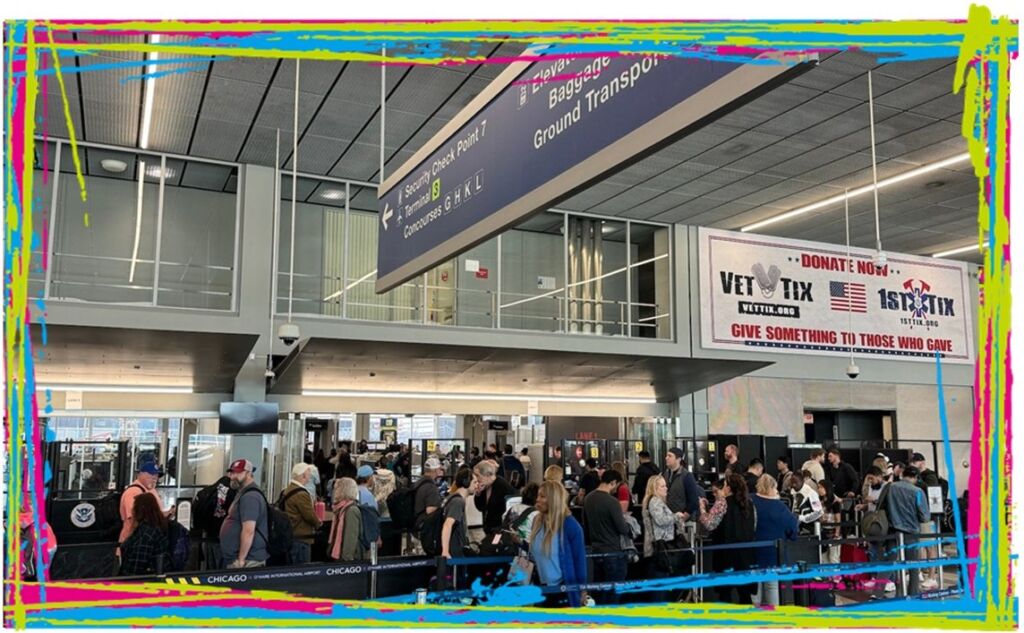Celebrate America's 250th Anniversary
America will celebrate her 250th birthday in 2026. There’s no better time to explore our great country than during this celebration!
Putting the fun in travel
Tennessee: (865) 398-6808 - Kentucky: (859) 414-6985 - reservations@gofunway.com
How will the Government Shutdown Affect Travel
With the shutdown of the federal government, the travel industry is facing some pretty severe impacts on travel. Government functions, considered nonessential, ended at midnight Wednesday, October 1, 2025. This includes things like training facilities for air traffic controllers, some government buildings that house passport offices, national parks and other government institutions.
If the shutdown continues over a period of time, airport security could also be affected if some Transportation Security Administration (TSA) employees working without pay stop showing up to work. The US Travel Association suggests the shutdown could cost the U.S. Travel industry $1 billion every week and will affect millions of travelers and businesses. Travel industry analyst, Henry Harteveldt, said “passengers need to prepare themselves for some government-induced turbulence.” This is what you need to know about the possible impacts of the shutdown on travel.

Airport Security
Most federal workers involved with air travel are considered essential, including the TSA and Federal Aviation Administration (FAA). This means they are supposed to keep working. However, those workers will not be paid during the shutdown which can lead to sick calls and staff not showing up for work. Security screening officers face overtime restrictions so travelers may notice longer security lines as screeners “time out.”
Air Traffic Control
Air traffic controllers are considered essential, meaning air traffic control (ATC) should operate normally. There is however, a shortage of ATC employees, which will only be exacerbated by the shutdown. Absenteeism may also present a significant challenge here as well.
Passports and Trusted Traveler Services
Passport services are also considered essential and will continue to operate during the shutdown. Trusted Traveler programs are also expected to continue processing applications. Both services are funded by fees from applicants so the shutdown will have little effect. However, some offices may close if they are in buildings run by a shuttered government agency. Passport processing could stop altogether if the department runs out of funds from applications and previous fees.
The U.S. Department of State employees will also be working without paychecks, so once again, absenteeism could eventually cause delays in processing. A prolonged shutdown could lead to an overall slowdown in processing times.


Border Crossings
Border crossings will remain open during the shutdown. Border Patrol and most of federal law enforcement officers are deemed essential and will operate as usual.
National Parks, Monuments, and Museums
The National Park Service relies on government funding so most workers will be furloughed during the shutdown. While the parks and monuments have remained open during previous shutdowns, most workers were laid off causing garbage pile ups, uncleaned/closed bathroom facilities, and closure of some trails. Poaching and other illegal activities tend to occur more frequently during shutdowns.
Many museums in Washington, D.C. like the Smithsonian Museums, the National Zoo and the National Galler of Art are federally funded. They will stay open or provide limited access during the shutdown if they have set aside funding. A long-term shutdown will drain those funds quickly causing eventual closure.
While the average American probably won’t see severe travel impacts from the shutdown of the government immediately, it will still have significant consequences for the travel industry as a whole. The U.S. Travel Association says the U.S. economy stands to lose about $140 million a day during the shutdown, in part due to longer wait times at airports and deferred projects. Additionally, longer processing times for passports, visas, and global entry authorizations will lead visitors to postpone or cancel travel plans. “A shutdown is a wholly preventable blow to America’s travel economy—costing $1 billion every week—and affecting millions of travelers and businesses while placing unnecessary strain on an already overextended federal travel workforce,” says U.S. Travel Association president and CEO Geoff Freeman.
In the end, the longer the government shutdown continues, the worse it will be for the traveling public. We strongly advise travelers to pay close attention to the news and be prepared for longer lines at airport security, flight delays and longer processing times for new passports and other government documents.
